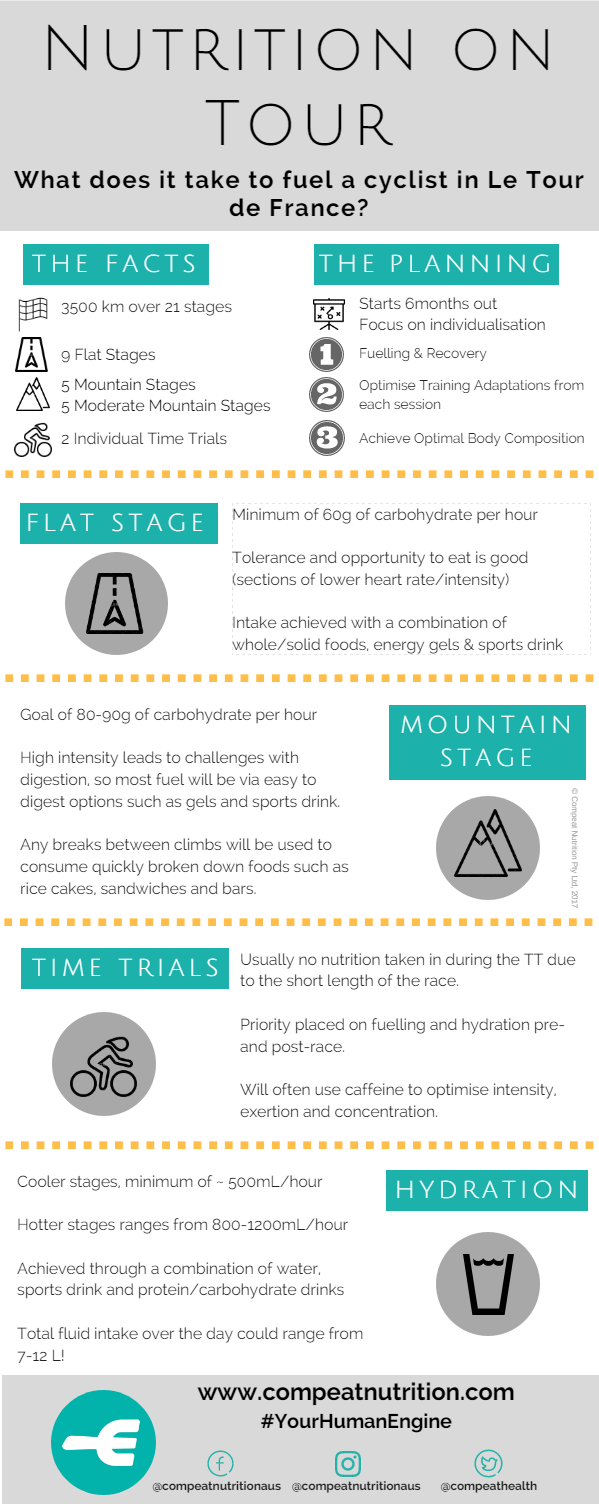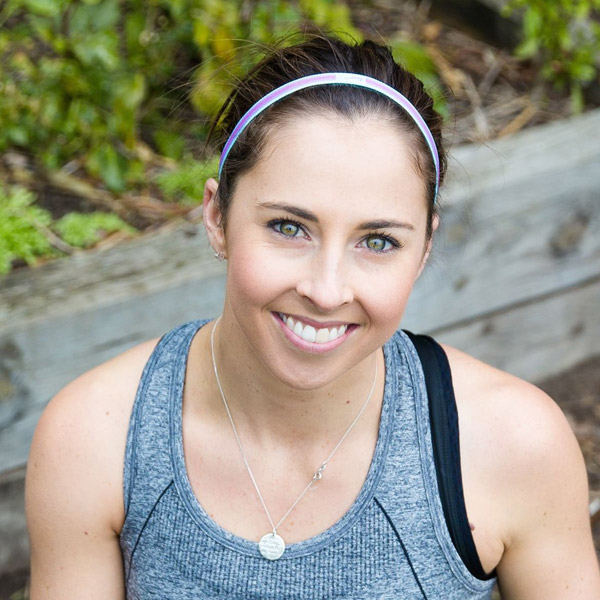Nutrition on Tour For Cycling Performance
The nutrition planning for such a significant race on the calendar, such as the Tour De France, starts at least 6 months from that first roll out. Why so early?
Well, nutrition takes time!
The biggest gains from optimal Sports Nutrition do not come while in race season, they come in the pre-season or prep phase of training. This is where individualised programs work their magic – intake is periodised specifically to the cyclist and their goals for their key race.
Priority is placed on:
- Optimising fuelling and recovery at every training session;
- Promoting training adaptations through nutrition to strategically alter how the muscle responds to each session;
- Achieving goal body composition with the focus on power to weight ratio. It is also about knowing the purpose of each cyclist in the team and where their weight is at an advantage – just look at the differences between a climbing specialist and a sprinter!
When it comes to racing The Tour, each day is treated differently by the riders in terms of nutrition on and off the bike. To assist with this, team Dietitians and Chefs work to plan a menu around the different stages to meet each nutrition goal (check out how Froome does it here).
Depending on the day, intake will be in the range of 5000-9000 calories OR 20,000 - 35,000 kJ.
Protein is pretty consistent no matter what role the cyclist has. The key is to not only get adequate protein each day for adequate recovery and energy, but also to spread intake well over the day to maximise it’s usage. With this, riders will aim to have a protein rich meal at least 3-4 times daily in 3 hour blocks where possible.
Carbohydrate demand on the other hand will vary depending on the day. On flat stages, it is easy to find opportunities to take on both whole foods and sports nutrition products. However, on the hillier mountain stages, opportunity to eat and drink is limited both due to the time spent climbing and also the level of exertion.
When our heart rate is high, our ability to tolerate foods and fluids reduces. As such, you will find that the nutrition on mountainous stages is much more focused on sports nutrition products that are easily accessed and quickly digested – such as gels and sports drinks.
Hydration also changes daily and needs will be dependent on the individual (their sweat rate), the type of stage, and the weather. Cooler days will usually see an intake of around 500mL per hour while on the bike, however this can increase upwards to 800-1200mL per hour on hotter days.
To optimise carbohydrate and electrolyte intake, this will usually be from a combination of sports drinks and water. For some stages, you may also find that one of their bidons is a more protein centric drink early in the ride to assist with recovery and fuelling later in the day.

Although you may feel a million miles from being on par with these riders, there is a lot of sports nutrition messages within their training and racing that all athletes (no matter what level!) can take on board. We utilise all of these concepts with our athletes and love periodising nutrition around your training to maximise your performance in a key race. All about our endurance race nutrition packages and daily training nutrition packages can be found here.
We have such an incredible crew of athletes achieving amazing things, so we would love to have you in our crew too!

ALICIA EDGE HEAD SPORTS DIETITIAN
Alicia is the head Advanced Sports Dietitian at Compeat Nutrition. She is also a mum and triathlete, so advice extends beyond the basics and is instead focused on providing effective and achievable nutrition for both training and racing.